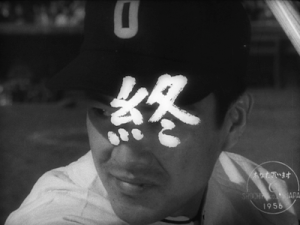With the conclusion of the 2015 World Series between the Kansas City Royals and the New York Mets and the coronation of the never say die Royals as the 2015 World Series champions, what better way to celebrate our national pastime than to write something about the game of baseball. Baseball has been a very big part of our lives since the Arizona Diamondbacks won the 2001 World Series in dramatic fashion. My son who was eight years old at that time became interested with learning the game and then began our journey into reaching his maximum baseball potential.
Going into his senior year and last year of playing college baseball next spring, I have a bittersweet feeling imagining that he will eventually hang his cleats and call it a day after having played competitively for the last 15 years. Having coached him from Little League, PONY and watching him play Club baseball and High school baseball I have to also learn to navigate the waters of College Prospect Recruiting to guide him in making a decision to find the right college that fits his needs. A fit that I am grateful he found at Grinnell College in Grinnell, Iowa.
Currently the most memorable moment of his College Career
What are the Probability of playing College and Professional baseball ? Very tough! Here are the facts.
- Less than three in 50, or about 5.6 percent, of high school senior boys interscholastic baseball players will go on to play men’s baseball at a NCAA member institution.
- Less than eleven in 100, or about 10.5 percent, of NCAA senior male baseball players will get drafted by a Major League Baseball (MLB) team.
- Approximately one in 200, or approximately 0.5 percent of high school senior boys playing interscholastic baseball will eventually be drafted by an MLB team.
- Base on above numbers, you can deduce that education and experience will give you a higher probability to advance professionally.
Baseball is often considered to be a typically American sport, but that doesn’t mean other nations don’t have it. In fact, there are countries, such as Japan, where baseball is just as popular as any other big sport, if not more popular. I am pretty sure that the above numbers mirror those in Japan or any other countries where youth baseball is popular or more popular than in the United States.
In Japan, baseball is played on several levels like here. There is the amateur baseball, high school baseball, college baseball and, of course, professional baseball. Baseball was introduced to Japan around 1873, during the turbulent times of the Meiji restoration. Since its beginnings, baseball in Japan was a club sport. The first ever baseball team was Shinbashi Athletic Club Athletics, which consisted of the players associated with the country’s first railroad, from Shinbashi in Tokyo to the treaty port of Yokohama.
Today, Japanese professional baseball consists of 12 teams, divided into two leagues: the Central League and the Pacific League. As for the minor league baseball, there are two leagues: the Western League and the Eastern League. This pales in comparison the MLB which consists of a total of 30 teams playing in the American League (AL) and National League (NL), with 15 teams in each league.
With these facts in mind, we can now begin our journey against Kobayashi’s system. A few words on the director Mr. Kobayashi (not to be mistaken to the character Mr. Pete Postlewaithe played in The Usual Suspects). Masaki Kobayashi (小林 正樹 Kobayashi Masaki?, February 14, 1916 – October 4, 1996) was a Japanese film director who embarked on a career in film in 1941 when he entered Shochiku Studios as an apprentice director under the successful and respected director Keisuke Kinoshita. His work with the Shochiku film company was interrupted by becoming a POW during the Sino-Japanese war. One of the most important filmmakers to emerge from Japan’s cinematic golden age, Masaki Kobayashi is remembered in great part today for his three-part epic The Human Condition (1959–61) which is partly based on his life altering experiences as a soldier and POW during World War 2, but that is just one of the blistering films he made in a career dedicated to criticizing his country’s rigid social and political orders.
He began making his own films in the early 1950s, and when he earned the right to choose his own projects, these turned into highly controversial film subjects. Eclipse’s four-disc collection Masaki Kobayashi Against the System groups three of his strongest 1950s efforts with a similarly scathing 1962 film, made amid other celebrated successes as Harakiri and his atypical color ghost story, Kwaidan. With these last two films he came to be known in the 1960’s as a master of both the samurai movie and the supernatural genre.
I Will Buy You, is Kobayashi’s 8th but first great film. For its part, I Will Buy You utilizes a fairly simple story of a baseball scout attempting to sign a hotly tipped college prospect to detail the greedy and morally corrupted scouting world in a profession geared toward entertainment. What results is a subtly dramatic, morally complex tale of loyalty that forgoes the conciliatory in favor of the tragic.
The film tackles the emergence of cutthroat capitalism in postwar Japanese life, specifically within professional baseball. The anti-hero is the slick, young, ambitious talent scout Daisuke Kishimoto (Keiji Sada). We first see him chasing down an ace pitcher. But when he finds out he has lost a finger in a mining accident, we never hear about the pitcher again. Daisuke turns his attention to Goro Kurita (Minoru Oki), a seemingly innocent college player who reveals a sharp streak once a bidding war breaks out between several major professional teams. Oki is a young man who is a very talented and successful college baseball player.
What was not shown in the film is how Goro got to this level coming from the countryside. It takes talent, drive to succeed, a lot of hard work with consistent on and off the field training during pre and in season as well as luck to even get the chance to play college and professional baseball. In baseball, I have learned that hustle and hard work trumps talent any day.
With several teams aggressively recruiting Goro Kurita , the story focuses mainly on Daisuke Kishimoto who plays a young scout from the Toyo Flowers. In the earlier and middle part of the film, we are given a chance to chime in on his interior thoughts in voice-over as he sizes up people and situations he faces. While a relative newcomer and somewhat naive, he’s also quite shrewd and calculating. He’s focused on success and money as are almost everyone he encounters, yet the way that he’s portrayed makes him a relatively sympathetic character that is immersed in a situation where one doesn’t know whom to trust.
At this point of the story, we can’t avoid to draw comparisons between more recent sports movies like Moneyball and Jerry Maguire. Sports agent Daisuke Kishimoto/coveted player Goro Kurita as compared to Sports agent Jerry Maguire/free agent Rod Tidwell. Sports movies in Hollywood during present times were more inspirational and wholesome as compared to this movie. Sports agent point of view in I will buy you “What do I have to do to sign him?” as compared to Jerry Maguire “What do I have to do to keep him”
Goro Kurita’s trainer for the past 4 years, Yunosuke Ito, is a very important intermediary. He’s in a position to extract bribes or payoffs to influence Goro and to allow access to him and his family. Goro’s girlfriend, Keiko Kishi, has a very different agenda and values than the scouts, Ito and Kurita. Goro’s family, parents and brothers, appear at first to be naive peasants; but when the bidding war starts, they are right in the thick of it. Goro himself is at first seen as interested only in the game, but as the story develops his innocence is only on the surface.
The story’s main theme is the conflict between humanity and the human being as a commodity. One’s interest is mainly maintained by witnessing how huge sums of money involved affect different persons. There is a good deal of suspense in seeing how people’s behaviors are affected under this pressure and incentive. I am sure Goro Kurita’s final decision will leave more questions than answers as to where his loyalty really was before, during and after the recruiting process.
Was he bought or not? If he was, when was he bought?
Will definitely miss these days…
Coaching Days for the Centerfield Royals
With Mr. Mark Grace of the 2001 World Series Champions Arizona Diamondbacks
With Mr. Pete Rose “Hit King” (4256 Hits)
Grinnell College Florida Spring Trip
Sophomore year at Salpointe Catholic
2010 National Classic
Photoshoot at Centerfield Baseball Academy in Tucson, AZ
Our family would also like to sincerely thank all the people (Coach Hollibaugh, Coach Cooprider and the rest of the GC Baseball coaching staff, Andy Morales, all his coaches from Little League, Club Baseball and Salpointe Catholic High School as well as all the baseball families we met the last 15 years) and organizations (Centerfield Baseball Academy, Fallon Sports especially Jeff Fallon, Perfect Game especially Mr. Jerry Ford, Grinnell College, High School Baseball Web ) for giving my son the chance to succeed and helping us through our jouney. Very much appreciated.
This post is part of the Criterion Blogathon, hosted by Criterion Blues, Speakeasy and Silver Screenings.






















GET OUT! You met Pete Rose?! Awesome!
Ever since I read Michael Lewis’ Moneyball, I have an inexplicable weakness for baseball statistics. So your post immediately became one of my blogathon faves because of the stats you included.
This sounds like a fascinating film, and I think I need to order it right away from Criterion.
Thanks for joining the blogathon and for introducing us (well, me) to this film! 🙂
LikeLiked by 1 person
Thank you very much! Yes the Hit King himself. Glad you enjoyed reading it and yes, get the set while it is still 50%off at B&N. Have a great day!
LikeLiked by 1 person
I think I already told you how much I love this post, but now I’m officially telling you. I love how you interweaved your personal experience with the economics of baseball, and finally the film. Thanks for participating and supporting this Blogathon!
LikeLiked by 1 person
Thank you very much Aaron! Great compliment coming from you. This was a more personal post of the 2 entries I submitted and I am glad you noticed how I tried to present it. Continued success to the Blogathon!
LikeLiked by 1 person
Yes I loved reading this and want to see this movie, love the personal angle and the background for both director and baseball you included here. Great work and thanks so much for being part of this event!
LikeLiked by 1 person
Thank you very much and what a treat to hear from the 3 hosts early this morning! Have a great day!
LikeLiked by 1 person
I really enjoyed reading your post. It was great how you tied your review to your own life and your families baseball career. It made it so much more personal. It sounds like a good movie, with interesting themes. Very fun pictures of your family, too!
LikeLiked by 1 person
Thank you very much Shari! Glad you liked it. Much appreciated. Happy Holidays!
LikeLike